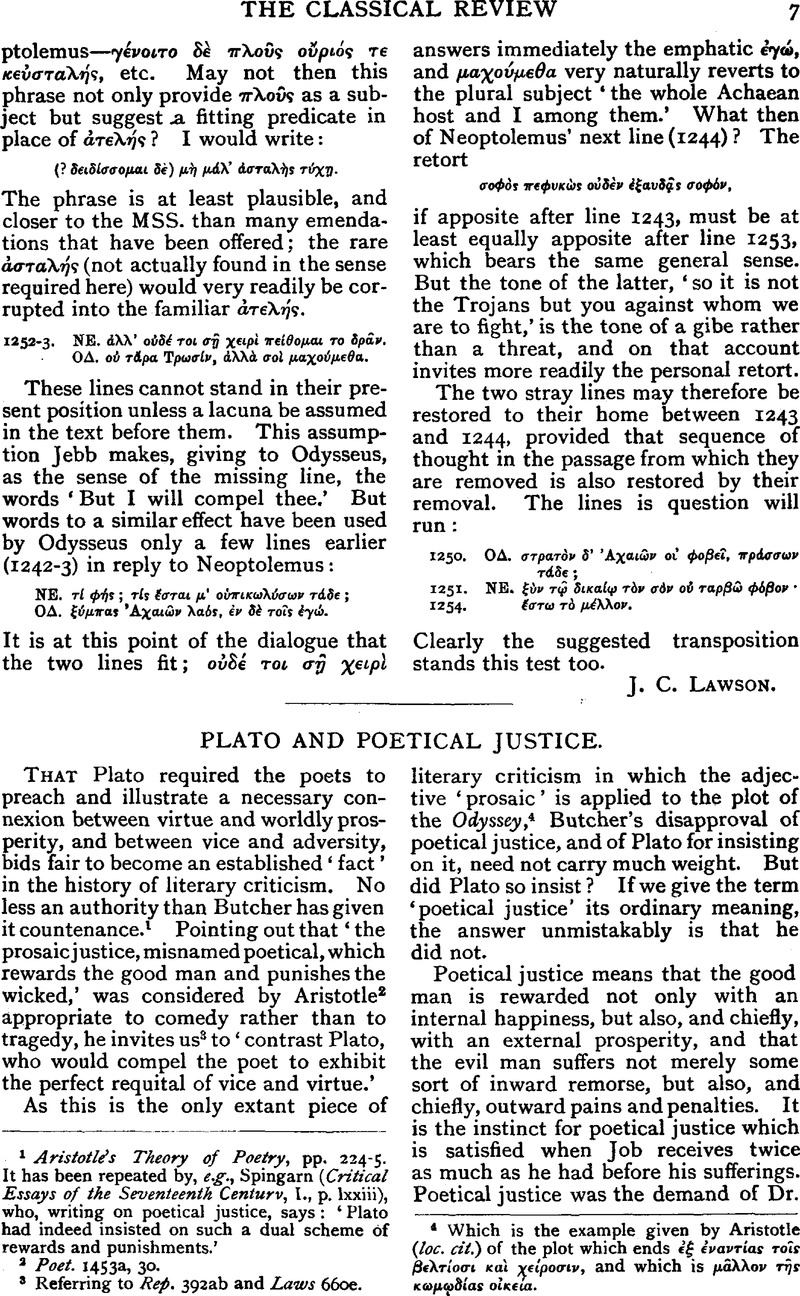No CrossRef data available.
Article contents
Abstract

- Type
- Review Article
- Information
- Copyright
- Copyright © The Classical Association 1929
References
page 7 note 1 Aristotle's Theory of Poetry, pp. 224–5. It has been repeated by, e.g., Spingarn (Critical Essays of the Seventeenth Centurv, I., p. lxxiii), who, writing on poetical justice, says: ‘Plato had indeed insisted on such a dual scheme of rewards and punishments.’
page 7 note 2 Poet. 1453a, 30.
page 7 note 3 Referring to Rep. 392ab and Laws 660e.
page 7 note 4 Which is the example given by Aristotle (loc. cit.) of the plot which ends ⋯ξ ⋯ναντ⋯ας τοῖς βελτ⋯οσι κα⋯ χε⋯ροσιν, and which is μ⋯λλον τ⋯ς κωμῳδ⋯ας οἰκε⋯α.
page 8 note 1 Though, in the ideal state, not great power or riches, for in this case ‘the half is more than the whole’ (Laws 690). Plato is well aware that if the virtuous expected ‘poetical justice’—i.e., great material returns for their services—his polities would be quite unworkable.


